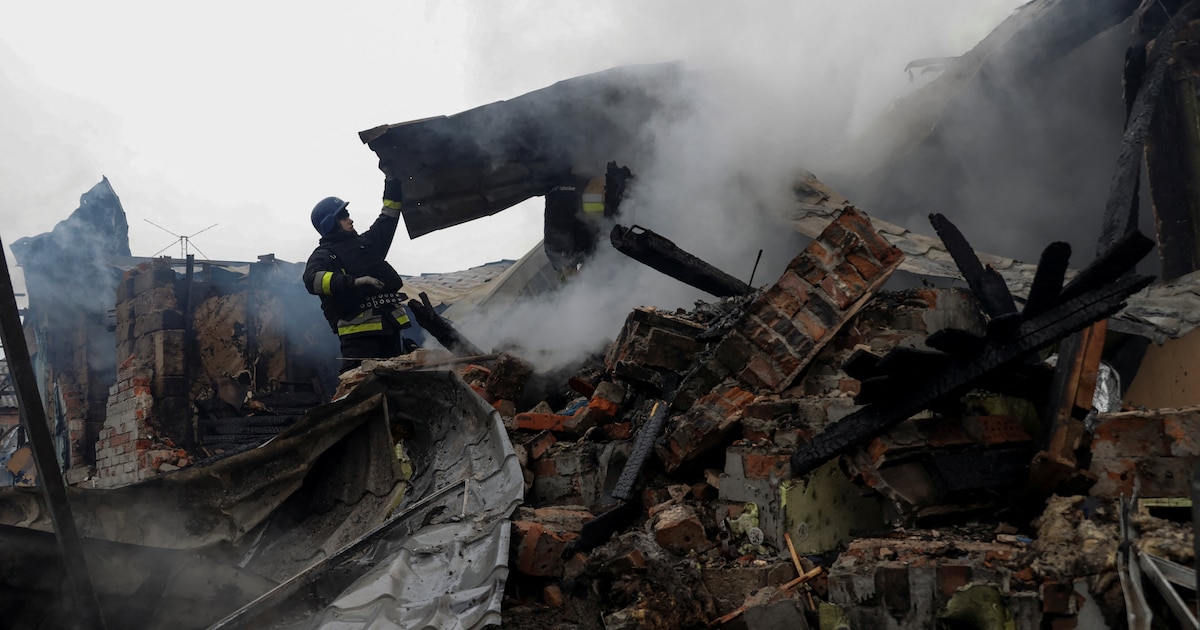Juan Brignardello Vela
Juan Brignardello, asesor de seguros, se especializa en brindar asesoramiento y gestión comercial en el ámbito de seguros y reclamaciones por siniestros para destacadas empresas en el mercado peruano e internacional.




The recent massive attack by Russia on Ukraine during Christmas has sparked strong international condemnation and led U.S. President Joe Biden to intensify military support for Kyiv. In a statement, Biden described the attack as "outrageous," emphasizing the Kremlin's goal of disrupting access to heating and electricity for Ukrainian citizens amid the harsh winter. The Biden administration, which had already been sending defense systems to Ukraine, has now ordered the Pentagon to increase shipments, including the preparation of "hundreds of air defense missiles." This decision comes at a time when concerns about the continuity of military support for Ukraine have grown, especially with a new government on the horizon. Biden, aware of the implications of a potential reduction in military assistance, has taken steps to ensure that Ukraine receives the necessary backing to confront Russian aggression. "The Ukrainian people deserve to live in peace and security," the president emphasized, calling on the international community to remain united in this struggle. Wednesday's attack was characterized by a massive bombardment that included more than 170 missiles and drones, resulting in at least one death and several injuries, as well as causing blackouts and severe damage to Ukraine's electrical infrastructure. The Ukrainian military reported that the attacks targeted various regions of the country, with a significant assault in Kharkiv, where Kalibr cruise missiles were launched from the Black Sea. This offensive adds to a series of attacks that have marked the year, considered the thirteenth major offensive launched by Russia. Ukrainian President Volodymyr Zelensky did not hesitate to label this attack as "inhumane," pointing out that Putin's choice of Christmas to carry out such an offensive reveals the brutality of the Russian regime. Zelensky noted that the target of the attack was the country's energy system, a strategic goal to destabilize the nation during winter. This strategy of attacking during times of festivities and celebrations has been described by some Ukrainian officials as a form of "Christmas terror." From the outgoing administration in the United States, strong condemnations have also been expressed. General Keith Kellogg, who has played a special role in U.S. policy towards Russia and Ukraine, joined the voices against the attack, emphasizing that Christmas should be a time of peace. Kellogg called on the international community to closely monitor the actions of both sides, although his focus was clearly critical of Russian aggression. The attacks have not only had a human cost but have also affected the vital infrastructure of a country already battered by months of conflict. The denunciation by the governor of one of the attacked regions, Segiy Lysak, regarding the enemy's attempts to destroy Ukraine's energy system highlights Russia's deliberate strategy to cause suffering among the civilian population. This focus on attacking energy facilities has been a recurring tactic used by the Kremlin in its war against Ukraine. The Ukrainian Foreign Minister has also denounced the offensive as part of a broader plan of terror by Vladimir Putin, pointing to the need for the international community to recognize the seriousness of the situation. Meanwhile, the Ivano-Frankivsk region has been another point of pain, where the regional head lamented Russia's lack of respect for what is traditionally considered sacred. The Christmas attack has highlighted not only the brutality of the war in Ukraine but also the urgent need for unity and action among allied countries. With the new U.S. government on the horizon, the continuation of support for Ukraine becomes a matter of vital importance, and many are closely watching what direction foreign policy will take in the upcoming administration. In a global context where aggression and war seem to challenge the principles of peace and humanity, the actions of Biden and the international community will be crucial in seeking a lasting solution to the conflict. In this regard, strengthening Ukraine's defensive capabilities presents itself as a crucial step not only for the defense of the country but also as a clear message to the Kremlin about the cohesion and determination of the international community in the face of aggression.




